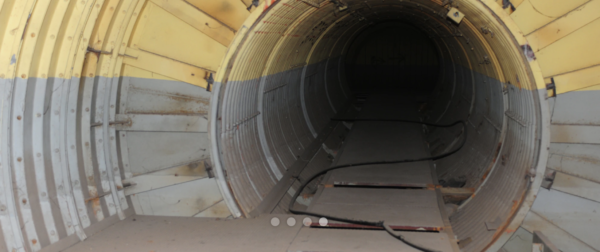
Deactivated Titan 1 Missile Silo Complex (Photo: Beale.af.mil)
Residents of Lincoln, California, are expressing fears about potential ground contamination from a former military site that could have serious consequences for their community.
The U.S. military built underground Titan 1-A missile sites around the country, including one in Lincoln, at the height of the Cold War. The site was closed in 1970 and now appears as just a concrete slab with massive metal doors, hiding a network of tunnels beneath.
In 1991, the Army Corps of Engineers discovered TCE (Trichloroethylene) in the soil, posing a threat to the groundwater. TCE, commonly found in household products, has been linked to various cancers and other health issues, making its presence a cause for concern. Among those concerns are liver and kidney cancers, Non-Hodgkin’s lymphoma, Parkinson’s disease, and cardiac birth defects.
Residents, including Anne Birge, a former sheriff’s deputy who moved to the nearby Sun City retirement community, have become increasingly alarmed by the lack of action taken since the discovery of TCE contamination. A TCE plume roughly the size of 20 football fields is believed to be slowly moving towards the nearby Sun City retirement community, where many residents are aged 55 and above.
Concerns are heightened because homes in the area can potentially draw up the contamination, much like carbon monoxide, posing a risk to residents’ health, according to Lenny Siegel, Executive Director at Center for Public Environmental Oversight. The California Water Resources Control Board and the Army Corps of Engineers have been monitoring the groundwater contamination and claim there is no immediate threat to nearby homes. However, some residents are skeptical and want a more expedited cleanup process.
The remediation plan for the site is currently underway, and the California Water Resources Control Board, along with the Army Corps of Engineers, aims to remove the TCE from the ground using federal funds. The cleanup process is expected to take several decades, with a decision on the cleanup plan anticipated to be approved by 2026.
The Former Beale AFB Titan 1-A missile Facility is just one of many sites across the country that are being addressed as part of the government’s efforts to clean up former military sites. It is estimated that there are around 5,400 similar sites in need of remediation.
The residents of Lincoln, California, hope that their concerns are heard and that the cleanup process progresses swiftly to alleviate any potential health risks posed by the ground contamination.
The Army Corps of Engineers has set up a webpage to provide updates on the project and address questions from the community.












